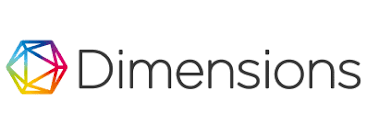Validitas Konstruk Instrumen General Self Efficacy Scale Versi Indonesia
Abstract
General Self-Efficacy Scale (GSES) merupakan instrumen pengukuran self efficacy yang menyeluruh dalam berbagai situasi yang dikembangkan oleh Schwarzer dan Jerusalem (1995). Penelitian ini bertujuan untuk menguji validitas konstruk instrumen General Self-Efficacy Scale (GSES). Subjek penelitian adalah mahasiswa UIN Sultan Syarif Kasim Riau yang berjumlah 585 orang. Metode confirmatory factor analysis (CFA) digunakan untuk menguji konstruk instrumen ini dengan menggunakan software LISREL 8.80 (Jöreskog & Sörbom, 2006). Hasil penelitian menunjukkan bahwa keseluruhan aitem General Self-Efficacy Scale (GSES) yang berjumlah 10 aitem bersifat unidimensional. Seluruh aitem General Self-Efficacy Scale (GSES) hanya mengukur satu faktor sehingga model satu faktor yang diteorikan dalam General Self-Efficacy Scale (GSES) dapat diterima.
Full Text:
PDF (Bahasa Indonesia)References
Akhtar, S., Ghayas, S., & Adil, A. (2012). Self-Efficacy and Optimism as Predictors of Organizational Commitment among Bank Employees. International Journal of Research Studies in Psychology, 5(1). 1-10.
Bandura, A. (1997). Self-Efficacy: The Exercise of Control. New York: Freeman.
Beaton, D. E., Bombardier, C., Guillemin, F., & Ferraz, M. B. (2000). Guidelines for the Process of Cross-Cultural Adaptation of Self-Report Measures. SPINE, 25(4).
Buckley, J. (2014). Exercise Self-Efficacy Intervention in Overweight and Obese Women. Journal of Health Psychology, 19(1). 1-11.
Chemers, M. M., Hu, L., Garcia, B. F. (2001). Academic Self-Efficacy and First-Year College Adjustment Performance and Adjustment. Journal of Educational Psychology, 93(1). 55-64.
Crandall, A., Rahim, H. F. A., & Yount, K. M. (2015). Validation of the General Self-Efficacy Scale among Qatari Young Women. Eastern Mediterranean Health Journal, 21(12). 891-896.
Jöreskog, K. & Sörbom, D. (2006). LISREL 8.80 for Windows. Computer Software. Scientific Software International, Inc.
Klopfer, F. J., & Madden, T. M. (1980). The Middlemost Choice on Attitude Items. Personality and Social Psychology Bulletin, 6(1), 97‐101.
Lönnfjord, V. & Hagquist, C. (2017). The Psychometric Properties of the Swedish Version of the General Self-Efficacy Scale; A Rasch Analysis Based on Adolescent Data. Current Psychology, 36(1).
Löve, J., Moore, C. D., & Hensing, G. (2011). Validation of the Swedish Translation of the General Self-Efficacy Scale. Quality of Life Research, 21(7). 1249-1253.
Luszczynska, A. Gutiérrez-Doña, B., & Schwarzer, R. (2005). General Self-Efficacy in Various Domains of Human Functioning; Evidence from Five Countries. International Journal of Psychology, 40(2). 80-89.
Morton, S., Mergler, A., & Boman, P. (2014). Managing the Transition: The Role of Optimism and Self-Efficacy for First-Year Australian University Students. Australian Journal of Guidance and Counselling, 24(1). 90-108.
Pedhazur, E. J. (1997). Multiple Regression in Behavioral Research: Explanation and Prediction (3rd Edition). New York: Thomson Learning, Inc.
Rimm, H., & Jerusalem, M. (1999). Adaptation and Validation of an Estonian Version of the General Self-Efficacy Scale (ESES). Anxiety, Stress, & Coping: An International Journal, 12(3). 329-345.
Scheier, M. F. & Carver, C. S. (1992). Effects of Optimism on Psychological and Physical Well-Being; Theoretical Overview and Empirical Update. Cognitive Therapy and Research, 16(2). 201-228.
Scherbaum, C. A., & Cohen-Charash, Y., & Kern, M. J. (2006). Measuring General Self-Efficacy, A Comparison of Three Measures Using Item Response Theory. Educational and Psychological Measurement, 66(6). 1047-1063.
Scholz U. et al., (2002). Is General Self-Efficacy a Universal Construct? Psychometric Findings from 25 Countries. European Journal of Psychological Assessment, 18(3).
Schunk, D. H. (1991). Self-Efficacy and Academic Motivation. Educational Psychologist, 26(3). 207-231.
Schwarzer, R. & Jerusalem, M. (1995). Generalized Self-Efficacy Scale. Dalam Measures in Health Psychology A User’s Portofolio, Causal and Control Beliefs. Windsor: NFER-NELSON.
Schwarzer, R., et al., (1997). The Assessment of Optimistic Self-Beliefs; Comparison of the German, Spanish,and Chinese Versions of the General Self-Efficacy Scale. Applied Psychology: An International Review, 46(1). 69-88.
Sherer, M. et al., (1982). The Self-Efficacy Scale: Construction and Validation. Psychological Reports, 51(2). 663-671.
Sukmak, V., Sirisoonthon, A., & Meena, P. (2002). Validity of The General Perceived Self-Efficacy Scale. Journal of Psychiatric Association of Thailand, 47(1). 31-37.
Teo, T. & Kam, C. (2014). A Measurement Invariance Analysis of the General Self-Efficacy Scale on Two Different Cultures. Journal of Psychoeducational Assessment, 32(8). 762-767.
Umar, J. (2011). Analisis Faktor Konfirmatorik. Manuskrip Tidak Dipublikasikan. Fakultas Psikologi, UIN Syarif Hidayatullah Jakarta.
Wijanto, S. H. (2008). Structure Equation Modeling dengan LISREL 8.8: Konsep & Tutorial. Yogyakarta: Graha Ilmu
DOI: http://dx.doi.org/10.24014/jp.v15i1.6943
Refbacks
- There are currently no refbacks.
Jl. H.R. Soebrantas Km. 15.5 No. 155 Gedung Fakultas Psikologi UIN Sultan Syarif Kasim Riau
Kel. Tuahmadani, Kec. Tampan, Pekanbaru - Riau 28293
Email: jurnal.psikologi@uin-suska.ac.id
Website: http://ejournal.uin-suska.ac.id/index.php/psikologi

Jurnal Psikologi oleh Fakultas Psikologi disebarluaskan di bawah Lisensi Creative Commons Atribusi 4.0 Internasional.
1.jpg)
.jpg)













